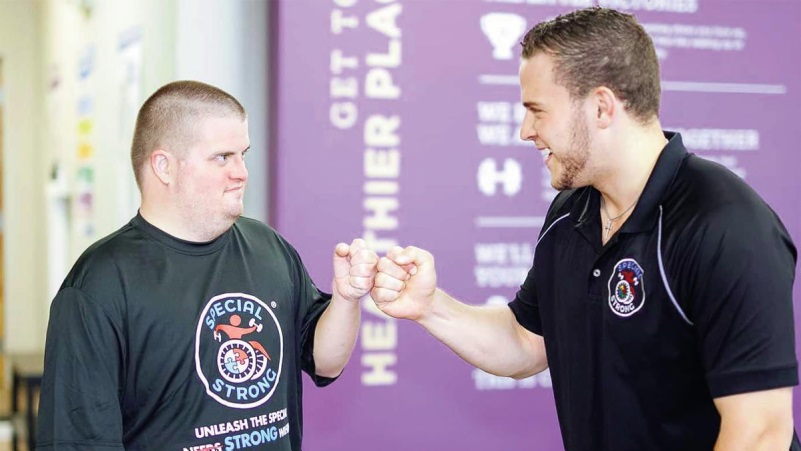WHY EXERCISE IS ESSENTIAL
According to the Centers for Disease Control and Prevention (CDC), less than half of American adults who suffer from mobility disability engage in any form of aerobic exercise even as simple as walking. In addition, the CDC notes that people with special needs and other disabilities are more likely to suffer from obesity and other chronic diseases like diabetes, heart disease, and stroke. People with disabilities who do not exercise are also prone to cancer. The good news is that regular physical exercise and fitness training lowers your risk of contracting any of these negative health conditions.
Despite the physical, mental or behavioral limitations, people with special needs can still greatly benefit from physical fitness training or any form of exercise.
As you know, exercise helps improve your physical, mental and overall wellbeing. Even a simple exercise such as brisk walking daily can help you maintain a healthy body weight, prevent chronic conditions like heart problems, strengthen your bones, and help improve your muscle endurance.
WHY FITNESS IS A CHALLENGE FOR THE SPECIAL NEEDS POPULATION
There's a big reason why some parents do not encourage their child with special
needs to exercise: The fear of getting hurt.

Parents or guardians of the special needs population think that exercise and physical fitness will hurt more than help their children. The fear of getting hurt is one of the biggest barriers to people with special needs to consider exercise as part of their daily routine. However, physical fitness training – when done right – can help someone with special needs to reap the many benefits that regular exercising has to bring not just for a month or two, but for a lifetime.
The good news is, exercise or physical fitness does not have to hurt. You don’t
have to engage in strenuous activities to achieve the health benefits that exercising can bring. Any form of physical activity, even as simple as brisk walking or taking the stairs instead of the elevator, can help improve your health in so many ways.
The key is to remain physically active doing the things that you enjoy even around the house. If you find it hard to stay physically active, here are some exercise tips that you can do and follow at home.
BE PATIENT AND COMMUNICATE WELL
When it comes to people with special
WORKING OUT FOR THE BEST : THE MANY BENEFITS OF EXERCISE
WORKING OUT FOR THE BEST : THE MANY BENEFITS OF EXERCISE
- Boost energy: Exercising makes your heart pump more blood into your body. That means a surge of oxygen flow and a quick shot of energy to keep you moving and alert during the day.
- Lose weight: One of the biggest problems of people with special needs is obesity. Unlike some form of diet that can be detrimental to your health, exercising helps you lose weight the healthy way. Even better, it helps you naturally fight obesity.
- Improve cognitive health: When you exercise, your body releases good hormones that not only make you feel good but helps you to naturally combat stress, depression and anxiety. Regular exercise has also been known to help sharpen your memory and improve overall brain health together with prope sleep.
- Improve behavior: For people with special needs, exercise helps improve behavior because of the same feel-good hormones that help you calm down thereby reducing the incidence of emotional outbursts or sudden meltdowns.
- Look good — or even better: If you want that kind of glow that puts you in the pink of health, there’s nothing better than exercise to do it for you. Exercise improves your muscle tone. It also strengthens and builds your body, making you look good and in turn feel good about yourself.
- Prevent muscular atrophy: Muscular atrophy is a condition where the muscles decrease in size due to a lack of physical activity. Regular exercise is the key to preventing that from happening.
- Enhance rehabilitation and therapy: Some people with special needs due to limited mobility caused by a severe injury or an accident can benefit from physical fitness training to help restore their range of motion. If that’s not possible, exercise can help them manage their injury over time and still improve their range of motion in the best way possible.
- Live longer: People who do regular exercise tend to live longer because of improved overall health. Special needs or not, all these benefits of physical fitness and exercise apply to everyone.